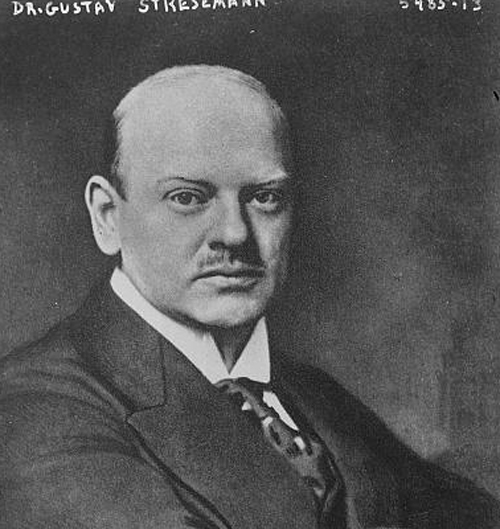New currency to deal with cause of food crisis as problems mount for German government
Rioting and looting spread - passive resistance abandoned in Ruhr - Nationalists walkout of Reichstag
Berlin, 17 October 1923 - Police in Berlin this week fired revolver shots and wielded bayonets in an effort to disperse thousands of unemployed men and women who had gathered at the Town Hall in the city.
Elsewhere in the city, shops were looted and in the neighborhood of the Stock Exchange, a crowd of unemployed protesters held up motor cars and attempted to push them into the River Spree.
Scenes of similar rioting and looting have also been reported from other cities and towns in recent weeks. In Dusseldorf, 5,000 unemployed people attacked the Town Hall, and as a result, French troops were summoned to protect the building. It is reported that the troops were actually welcomed by the desperate protesters with cries of ‘Give us food.’
The decision of the German government to introduce a new currency is a direct response to this ongoing crisis. A new currency, it is believed, will solve many of the of the underlying problems in the society as the cause of the serious food riots was not a lack of food, but an artificial state of affairs where the current currency was worthless.
A new, temporary bank to be known as the Rentenbank (or Annuinities bank) will be established. This bank will issue Renten (annuinities) notes of denominations of 1,2,3,5,10,20, 50, 10 and 1,000 gold marks. These Renten Notes will be issued entirely separately from the old paper marks, which will remain in use.
In addition to domestic concerns and political tensions in the Reichstag - 79 Nationalists walked out of the parliament when a vote was being taken on an Emergency Powers Bill - the German government has been signalling a new approach to the crisis in the Ruhr region.
In recent weeks, the German Chancellor, Dr. Gustav Stresemann, admitted that the policy of passive resistance that had been pursued in response to the Allied treatment of his country, most notably the occupation of the Ruhr, had failed and that what was now required was an agreement between the Allies and Germany. In doing so, Dr Stresemann was required to combat criticisms that he had given up the fight over French tactics in the Ruhr.
However, the shift in tone on the part of the German Chancellor has been met with suspicion by the French Government. One French newspaper is claiming that the new Germany policy is, in reality, little different to the old one.‘Since proclaiming the cessation of passive resistance, Le Temps comments,‘Dr. Stresemann has suspended export licences and the coal tax and declared that Germany will not pay for deliveries in kind. The only difference between passive resistance and the present tactics seems to be that instead of an open struggle subsidised by the Reich there may be a disguised struggle carried on at the expense of the Rhenish and Westphelia populations. In that case the most serious and prompt measures will have to be taken.’
Pathé newsreel footage, ‘In Berlin Today’ from 1923
[Editor's note: This is an article from Century Ireland, a fortnightly online newspaper, written from the perspective of a journalist 100 years ago, based on news reports of the time.]





















